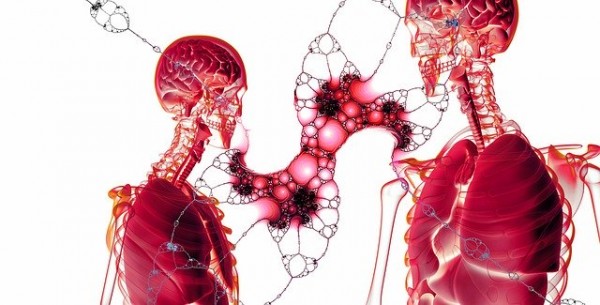First COVID-19 Autopsies Reveal Cardiopulmonary Oddities


As we are all aware, COVID-19 is a disease that attacks one's cardiopulmonary system, more specifically the lungs. As of late, scientists, surgeons, and doctors have been observing the disease in patients both alive and postmortem, in hopes of finding a way to either slow the disease or to completely stop it.
Significant findings in this area were established recently by a group of pathologists and medical researchers from Louisiana State University. The study focused on the autopsies of African Americans from New Orleans, who had died from COVID-19 related complications.
These new and critical findings were published in The Lancet Respiratory Medicine and will provide an important handbook for patient management according to a post in Medical Xpress.
"We found that the small vessels and capillaries in the lungs were obstructed by blood clots and associated hemorrhage that significantly contributed to decompensation and death in these patients. We also found elevated levels of D-dimers-fragments of proteins involved in breaking down blood clots. What we did not see was myocarditis, or inflammation of the heart muscle, that early reports suggested significantly contributes to death from COVID-19," explained Richard Vander Heide, the senior author of the study and Professor and Director of Pathology Research at LSU Health New Orleans School of Medicine.
ALSO READ: "Just the Tip of the Iceberg" Chinese Bat Virologist Warns of Another Global Outbreak
What were the methods involved in the study?
All the patients involved were male and female African Americans who were between 40 and 70 years of age. A certain number of those involved had a history of being overweight, chronic kidney disease, diabetes, hypertension, and insulin dependence.
In a general way, the patients involved in the study were presented to the hospital were more or less developed a mild cough and fever three days to one week. They also experienced sudden respiratory decompensation and had chest X-rays, which showcased "bilateral ground-glass opacities." These x-ray findings were expected with patients who were suffering from acute respiratory distress syndrome (ARDS).
DON'T MISS: PPE to Be Upgraded With Special Fabric That Eliminates Viruses on Contact
The study will significantly help in working out proper treatment protocols for COVID-19 patients even though the lung structures had the same widespread damage to gas exchange evident in the first SARS epidemic. LSU Health New Orleans importantly detected small vessel clotting, which is a new finding for COVID caused by SARS-CoV-2, as reported in The Lancet.
"The key implications of our study include the discovery of a mechanism for severe pathology within the African American population, likely extendable to all persons with severe disease, and possibly a target for immediate therapeutic management. The results may also apply to a broader demographic experiencing severe COVID-19 disease. Management of these patients should include therapy to target these pathologic mechanisms," Dr. Vander Heide further pointed out to Home Health Choices.
All the post-mortem examinations were done at the University Medical Center in New Orleans. The center is one of the limited numbers of hospitals in the United Staes, which can perform autopsies of COVID-19 positive patients under the standards set by the Centers for Disease Control and Prevention (CDC).
READ MORE: Kawasaki-Like Illness Linked to COVID-19 Now Affects Teens, Including the Heart and Other Organs
May 28, 2020 09:05 AM EDT





